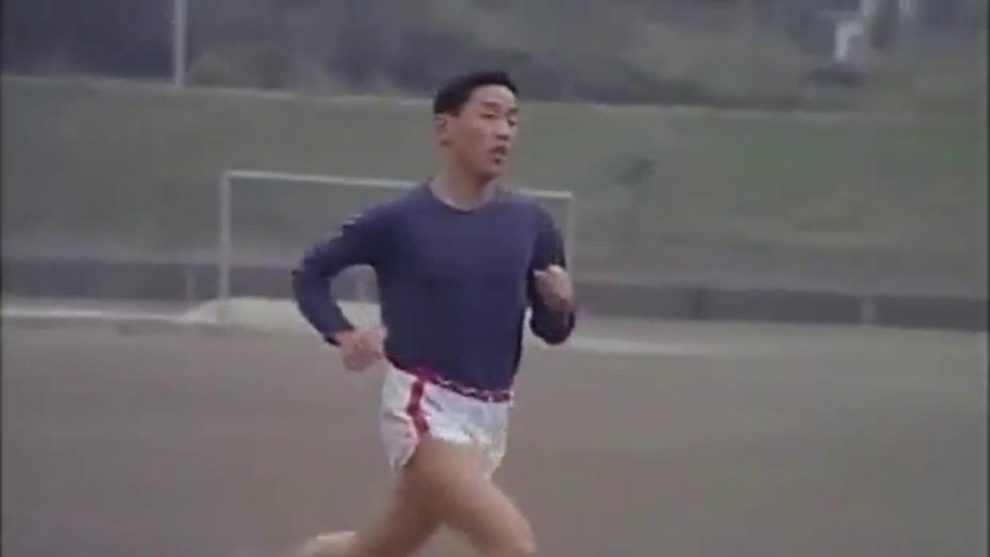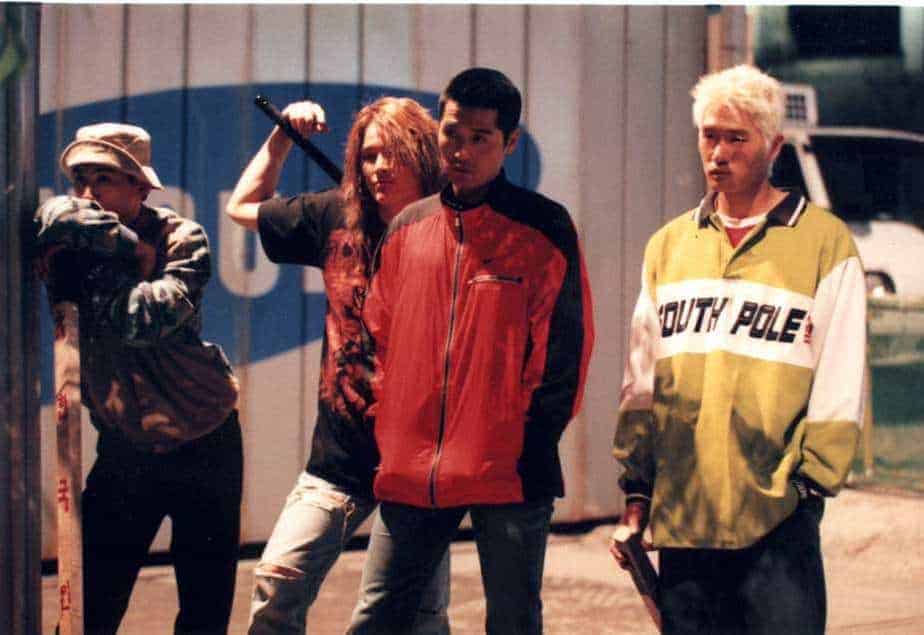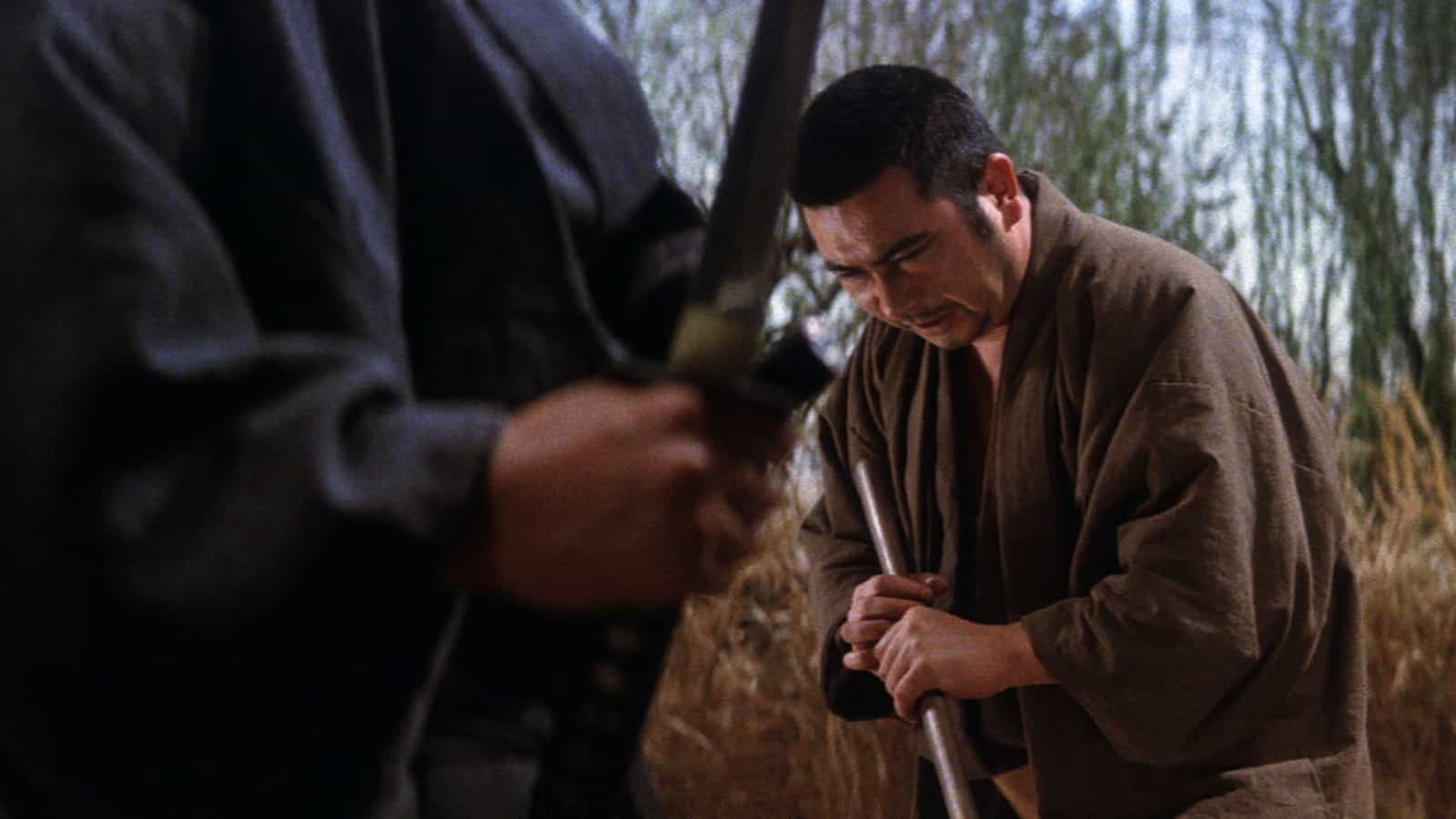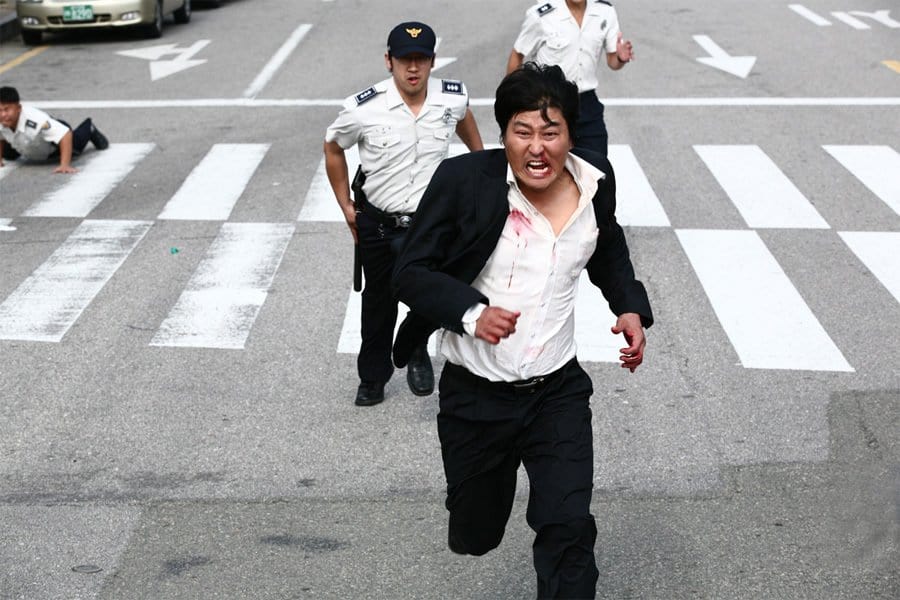The 1964 Olympics in Tokyo was a special time for Japan, marking the first major international event to take place in the country in the post-war world. Naturally, coverage leading up to the games was massive, and cinema was taken full advantage of to get the nation excited about the upcoming games. Aside from the titanic effort that is Kon Ichikawa's “Tokyo Olympiad”, there were many smaller documentaries produced in and around the competition, one of which was Kazuo Kuroki's “Record of a Marathon Runner”.
Record of a Marathon Runner screened at Japanese Avant-Garde and Experimental Film Festival
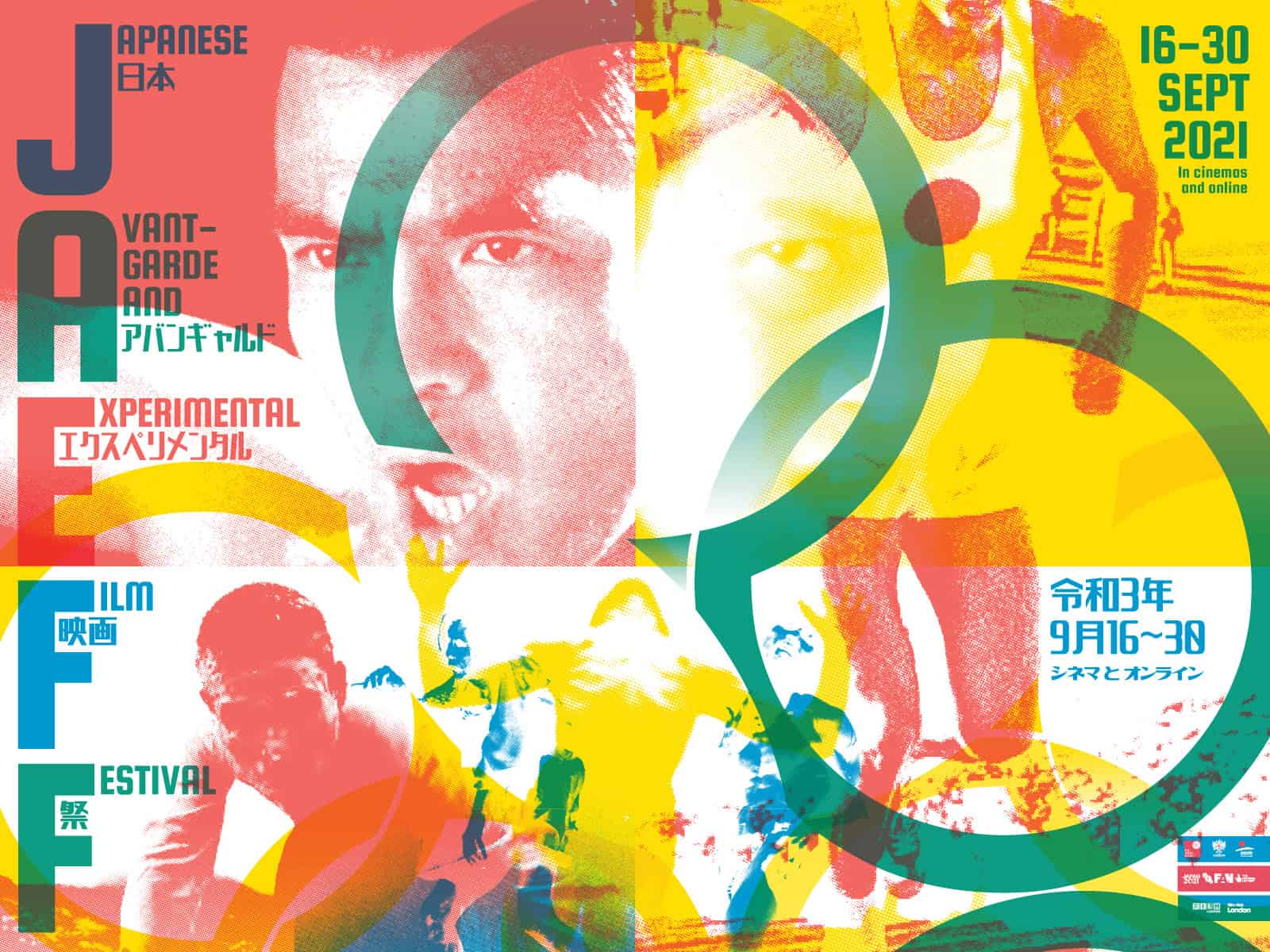
Now, I must confess right from the off that it's seemingly impossible to find a version of Kuroki's film available with English subtitles, so as for the content of the narration, I cannot comment. However, if a film manages to keep you engaged in the way that “Record of a Marathon Runner” did, albeit despite my linguistic shortcomings, then indeed, it's one worth discussing.
The crux of the documentary, which runs only 62 minutes in length, is this: Kimihara Kenji, a marathon runner and Japanese hopeful for the Olympic games, is followed for six months as he trains for the upcoming competition. During this period, he suffers and must recover from a setback involving a knee injury and trains in all types of weather before competing in a handful of smaller races.
For most of the film, we simply observe Kenji train as he runs through rain and shine to get in shape for the games. The documentary is bookended by his participation in two marathons (the second being the Lake Biwa Marathon of 1964, if I'm not mistaken), both of which see some level of success for the runner. Kenji would go on to place eighth in the marathon come the time of the Tokyo Games, a result that feels all the more gutting after seeing the work he's put in during the preceding months.
Far from merely being footage of Kenji running track, the film instead follows his mostly lonesome training regime as he jogs through the countryside of the Kagoshima prefecture. We follow him from behind as he continues to run with no end in sight, as the world passes by around him. There's something extremely relaxing about the film, particularly during the moments without narration as we take in images of an athlete with a singular goal in mind. Rarely do we indulge in Kenji's victories. Instead, we see him back on the track, country road, or city street at the earliest possible time.
Somewhat surprisingly for a PR film, Kuroki's documentary is less glamorous than one might expect. We mostly avoid preparation for the games, barring an opening sequence that captures the athletic zeitgeist beginning to pick up steam. Instead, Kuroki takes a more personal approach, with the focus of his lens very much being Kenji's dedication and desire. No more is this the case than during an instance in which Kenji continues to quite literally jog on when his fellow running mates decide to call it a day. The marathon runner makes for a solitary figure as he runs off into the distance, leaving his teammates behind.
Kuroki's documentary captures the true dedication an Olympic athlete must have simply to compete, let alone win. You'd be forgiven for thinking that the timespan covered in the film is shorter than six months, as all Kenji seems to do this whole time is run. However, that is the reality of his career as a professional athlete. It's all about the next race, as success is temporary.
With a more artful and focussed approach than many may expect, Kazuo Kuroki's “Record of a Marathon Runner” offers fascinating into the lifestyle of an athlete, at least in the mid 20th century.


